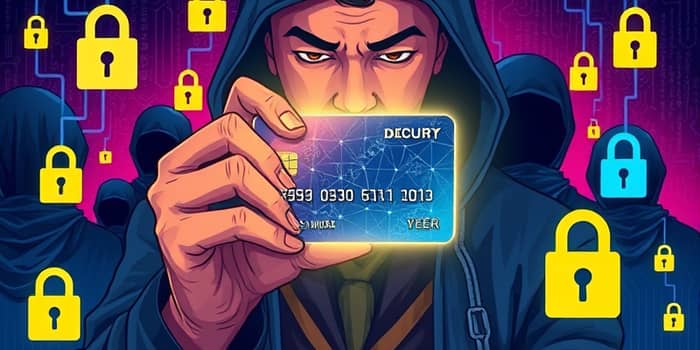
In an age of instant transactions and digital convenience, it can be tempting to hand your credit or debit card to someone you trust. Whether it’s a family member in a bind or a close friend needing a quick favor, the impulse to help is understandable. However, the consequences of such a choice may be more serious than you realize.
By examining the true risks and responsibilities, you’ll understand why direct financial and legal risks can arise even when you trust the person holding your card.
Lending your card may seem harmless, but it exposes both you and the borrower to potential misuse. Cards come with a cardholder agreement that explicitly prohibits sharing or lending your physical card or PIN. Should any unauthorized transaction occur, the issuer holds you responsible for all charges, regardless of your intentions or the borrower’s claims.
Even honest mistakes can create a nightmare scenario. Lost or stolen cards given to friends can end up in the wrong hands, leading to a lengthy dispute process. By lending, you effectively waive your dispute rights, making you the sole party accountable for any misuse.
Credit card fraud is not a theoretical threat; it’s growing at an unprecedented pace. Recent data highlights a dramatic upward trend in fraud that demands urgent attention. An annual rise of 46% in fraud attempts signals that criminals are becoming more sophisticated, targeting unsuspecting cardholders worldwide.
By 2026, experts estimate projected global losses from card fraud will soar to $43 billion. This figure has climbed sharply from $32.4 billion in 2021 and a mere $9.84 billion in 2011, illustrating how rapidly digital vulnerabilities are being exploited.
In the United States alone, 46% of global credit card fraud occurs domestically, and e-commerce-related fraud has spiked by 140% over the past three years. These numbers underscore the fact that sharing your card—no matter who you are—places you squarely in harm’s way.
Most card issuers include clauses that void fraud protection if you willingly lend your card. By sharing your PIN or handing over the plastic, you are effectively pre-authorizing any charges made by the borrower. In the eyes of the bank, you have agreed to all transactions, leaving you with little recourse should disputes arise.
Beyond immediate financial loss, your relationship with the lender may deteriorate if they refuse to repay. And if the borrower accidentally overspends or becomes delinquent, these issues reflect back on your credit report, potentially damaging your score.
Delinquencies on credit card accounts can have lasting effects. As of Q1 2025, the overall delinquency rate on credit card loans sits at 3.05%, a rate that has seen notable fluctuations. High-risk consumers, newly approved under loosened standards, have contributed to these challenges.
When a borrowed card goes unpaid, the credit bureaus record late payments, driving down your score. Even if you settle the balance later, the mark remains for up to seven years. Maintaining a strong credit profile requires vigilance, and sharing your card undermines that effort.
Furthermore, sharing details like your card number or CVV exposes sensitive financial and personal data to potential interception. Once compromised, criminals can drain accounts or engage in identity theft, compounding your troubles.
Fortunately, there are effective strategies to help you support friends and family without jeopardizing your finances.
By adopting these habits, you implement effective and secure alternative methods that protect both parties and prevent misunderstandings.
Sharing is caring, but not when it comes to payment cards. The evidence is clear: even trusted friends and family can falter, and the fallout can be both financially devastating and legally complex. By refusing to lend your card, you preserve your right to dispute unauthorized charges and safeguard your credit standing.
Embrace safer alternatives, stay informed about emerging fraud trends, and treat your payment cards as strictly personal tools. Your future self will thank you for putting security and responsibility first.
References













